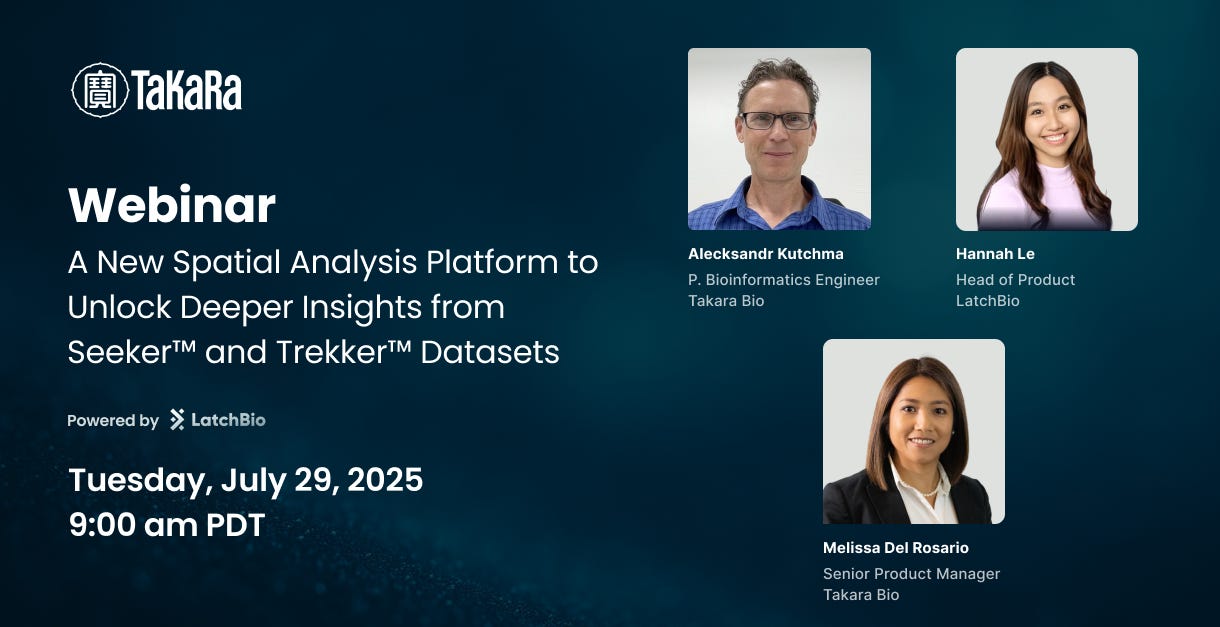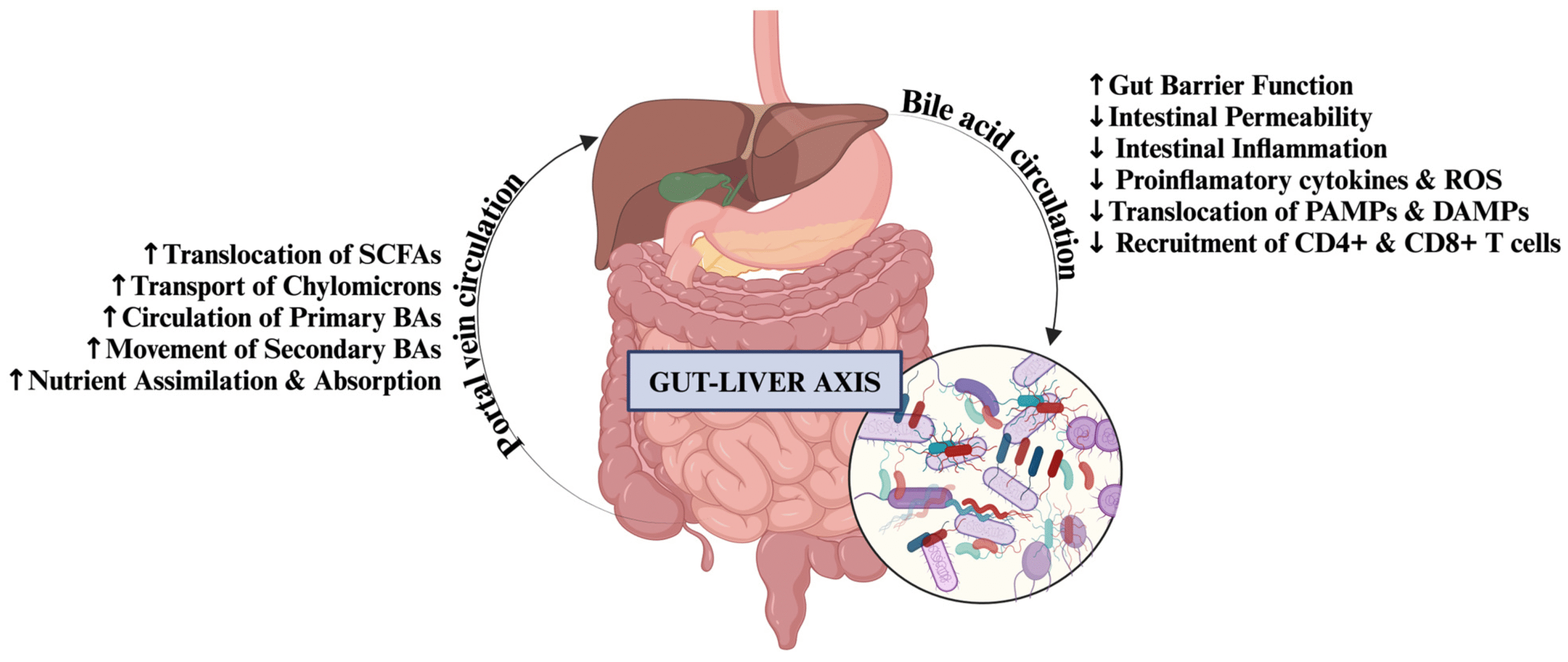Click here to chat with me!
Search our website now
Latest Posts
Join us for a live walkthrough of Plots–an early access visualization platform designed for spatial and single-cell data analysis of Seeker™ and Trekker™ datasets–developed by Takara Bio and LatchBio. Register for Webinar What You’ll Learn Plots enables scientists to analyze complex spatial omics data through an intuitive, no-code interface. In this session, you’ll learn how to: Perform background removal Perform QC, filtering, and Leiden clustering Overlay H&E or immunofluorescence images on spatial embeddings Visualize and interact with H5AD files across multiple samples Use Lasso selection to define regions of interest Identify spatially variable genes Detect differentially expressed genes Conduct ligand-receptor analysis within selected spatial domains Perform cell type annotation and deconvolution Explore cellular trajectories in spatial context Everything is accessible through a user-friendly graphical user interface. No programming required. We look forward to seeing you there!
Ahead of Intelligent Health (13-14 September 2023, Basel, Switzerland), we asked Yurii Kryvoborodov, Head of AI & Data Consulting, Unicsoft, his thoughts on the future of AI in healthcare. Do you think the increased usage of Generative AI and LLMs will have a dramatic impact on the healthcare industry and, if so, how? Generative AI is just a part of the disruptive impact of all AI tech on the healthcare industry. It allows to dramatically reduce time efforts, costs and chances of mistakes. Generative AI and LLMs are applied to automating clinical documentation, drug discovery, tailoring of treatment plans to individual patients, real-time clinical decision support and health monitoring, extracting valuable insights from unstructured clinical records, streamlining administrative tasks like billing and claims processing, providing instant access to comprehensive medical knowledge. And this list continues.
We sat with Benjamin von Deschwanden, Co-Founder and CPO at Acodis AG, to ask him his thoughts on the future of AI in healthcare. Do you think the increased usage of Generative AI and LLMs will have a dramatic impact on the healthcare industry and, if so, how? I think that the strength of Generative AI lies in making huge amounts of information accessible without needing to manually sift through the source material. Being able to quickly answer any questions is going to be transformative for everyone working with increasingly bigger data sets.The challenge will be to ensure that the information we get by means of Generative AI is correct and complete – especially in healthcare – as the consequences of wrong data can be fatal. We at Acodis are actively working on practical applications of Generative AI inside our Intelligent Document Processing (IDP) Platform for Life Science and Pharma clients to drive efficiency and accelerate time to market, whilst controlling the risks.
Intelligent Health 2024 returns to Basel, Switzerland on 11th–12th September. We’ve got prominent speakers. An extensive programme. Groundbreaking advancements in #HealthTech. And much, much more. Our incredible 2024 programme will dive deeper than ever before. From sharing the latest innovation insights to exploring use cases of AI application in clinical settings from around the world. All through our industry-renowned talks, limitless networking opportunities, and much-loved, hands-on workshops. Read on to discover what themes await at the world’s largest AI and healthcare summit.
We sat down with Margrietha H. (Greet) Vink, Erasmus MC’s Director of Research Development Office and Smart Health Tech Center, to ask her for her thoughts on the future of AI in healthcare. Do you think the increased usage of Generative AI and LLMs will have a dramatic impact on the healthcare industry and, if so, how? The integration of Generative AI and LLMs into the healthcare industry holds the potential to revolutionise various aspects of patient care, from diagnostics and treatment to administrative tasks and drug development. However, this transformation will require careful consideration of ethical, legal, and practical challenges to ensure that the benefits are realised in a responsible and equitable manner.





